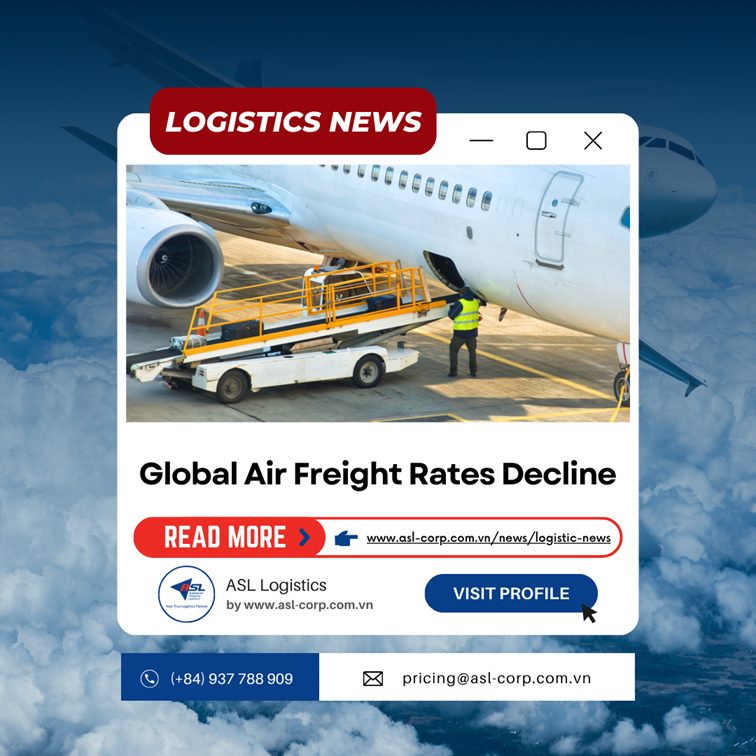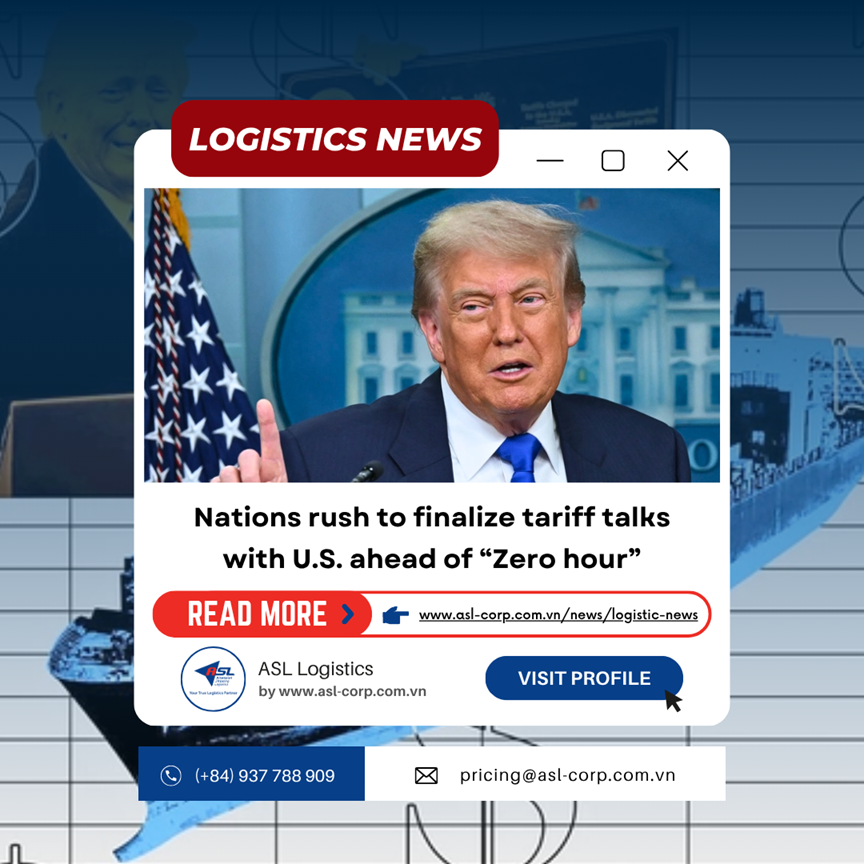Logistic News
EXPLORING THE MOST COMMON TYPES OF CARGO SHIPS IN MARITIME TRANSPORT
13 June 2025
In the context of increasing globalization and cross-border trade, maritime transport plays a vital role in the global supply chain. According to the International Maritime Organization (IMO), over 80% of the world’s cargo volume is transported by sea—a staggering figure that highlights the irreplaceable importance of the shipping industry.
However, few people realize that this industry does not operate uniformly. Each type of cargo requires a specific kind of vessel, specially designed to ensure safety, cost-efficiency, and optimal transport performance. In this article, we will take a closer look at the six most common types of cargo ships — ranging from container ships and bulk carriers to reefer ships and Ro-Ro vessels—often regarded as the silent workhorses maintaining the uninterrupted flow of global trade.
1. Container Ships – The Backbone of the Global Supply Chain

Container ships are vessels specifically designed to transport cargo packed in standard containers (20-foot or 40-foot). With a multi-tiered stacking structure, these ships optimize space usage and loading/unloading time, while minimizing the risk of cargo loss.
Mega vessels such as the Ever Ace or MSC Gülsün can carry up to 24,000 TEU, equivalent to over 240,000 tons of goods per trip. Container ships are currently the primary mode of transport on intercontinental trade routes – especially between Asia, Europe, and North America.
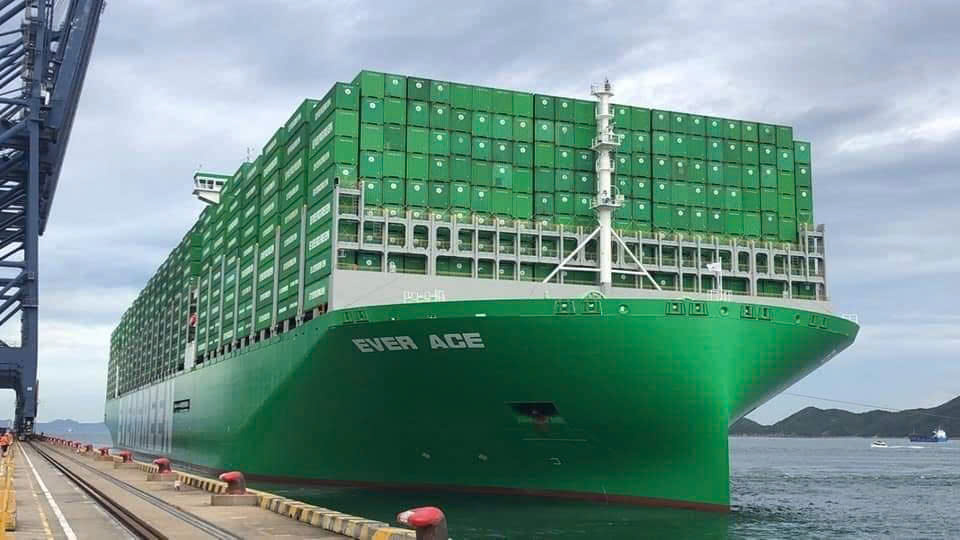
The mega container ship Ever Ace, part of the new generation of container vessels – the Evergreen A-class, can carry up to 23,992 cargo units.
Some major shipping lines include:
- Maersk Line
- MSC (Mediterranean Shipping Company)
- ONE (Ocean Network Express)
- CMA CGM
- Hapag-Lloyd
Advantages:
- Optimizes costs, loading/unloading time, and transport efficiency.
- Standardized cargo, suitable for intermodal transportation.
2. Bulk Carriers – Expertise in Transporting Raw Materials
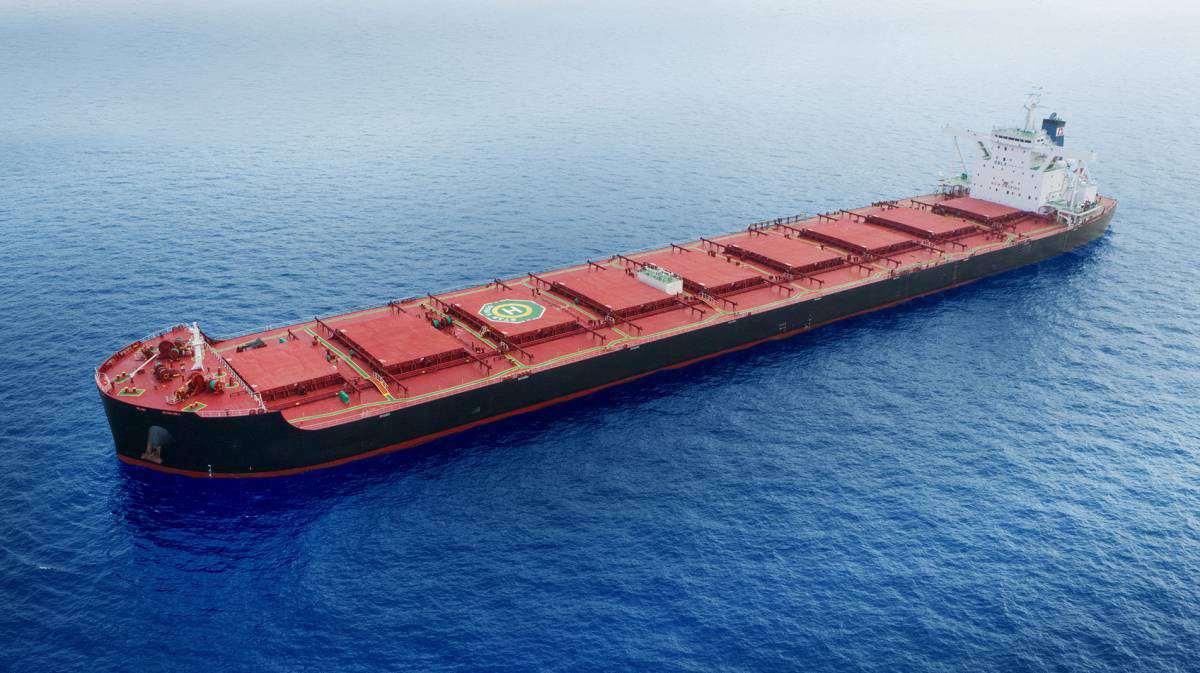
Bulk carriers are specifically designed to transport goods such as coal, minerals, cement, grains, fertilizers, etc. These types of cargo typically have large volumes but low value, requiring spacious cargo holds and specialized loading/unloading equipment.
Bulk carriers mainly operate on major raw material export routes such as:
- South America – Asia (grains)
- Australia – China (iron ore, coal)
- Russia – India (fertilizers, thermal coal)
Advantages:
- High efficiency in transporting large-volume cargo
- Low transportation cost per unit of weight
3. Oil Tankers – The Silent Giants of Maritime Transport
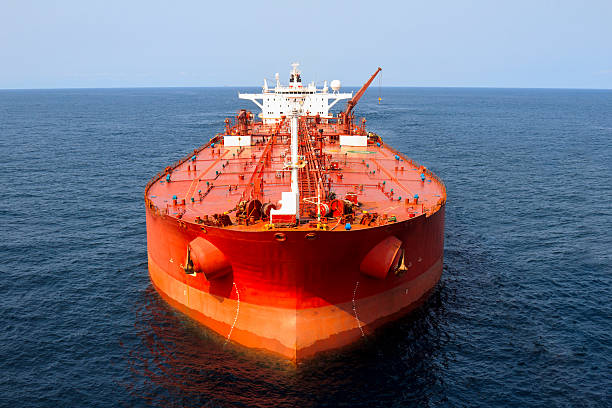
Oil tankers are specialized vessels designed to transport crude oil, refined petroleum products, liquid chemicals, or liquefied gases (LNG/LPG). Equipped with dedicated cargo tanks and advanced piping systems, these ships ensure maximum safety during the transport of flammable and hazardous substances.
Some of the world’s largest tankers, such as the TI Europe or Seawise Giant, can carry up to 500,000 tons of crude oil in a single voyage. Although they are rarely seen at conventional commercial ports, these vessels play a crucial role in the global oil and energy industry.
Advantages:
- Ensures safety when transporting hazardous cargo
- High cargo capacity, leading to lower operational costs per ton
4. Ro-Ro Ships – The Optimal Solution for Vehicle Transport
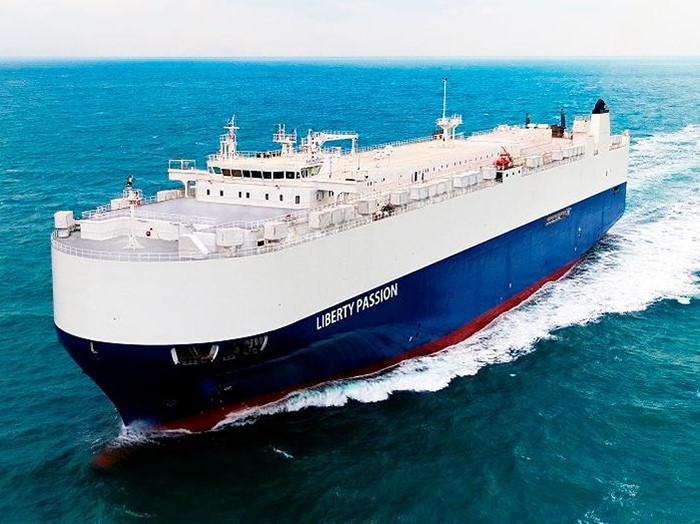
Ro-Ro (Roll-on/Roll-off) ships are specially designed to carry wheeled vehicles such as cars, trucks, semi-trailers, and specialized machinery. Their standout feature is the ability for vehicles to drive on and off the ship via built-in ramps, saving significant time and labor in loading and unloading.
Modern Ro-Ro vessels can transport over 10,000 vehicles per voyage, playing a vital role in the global automotive supply chain.
Advantages:
- Reduces operational and handling costs
- Vehicles roll on and off the ship via ramps—no cranes needed
- Spacious, multi-deck cargo holds support transport of diverse machinery and vehicles
5. Reefer Ships – Ensuring Quality for Perishable Goods
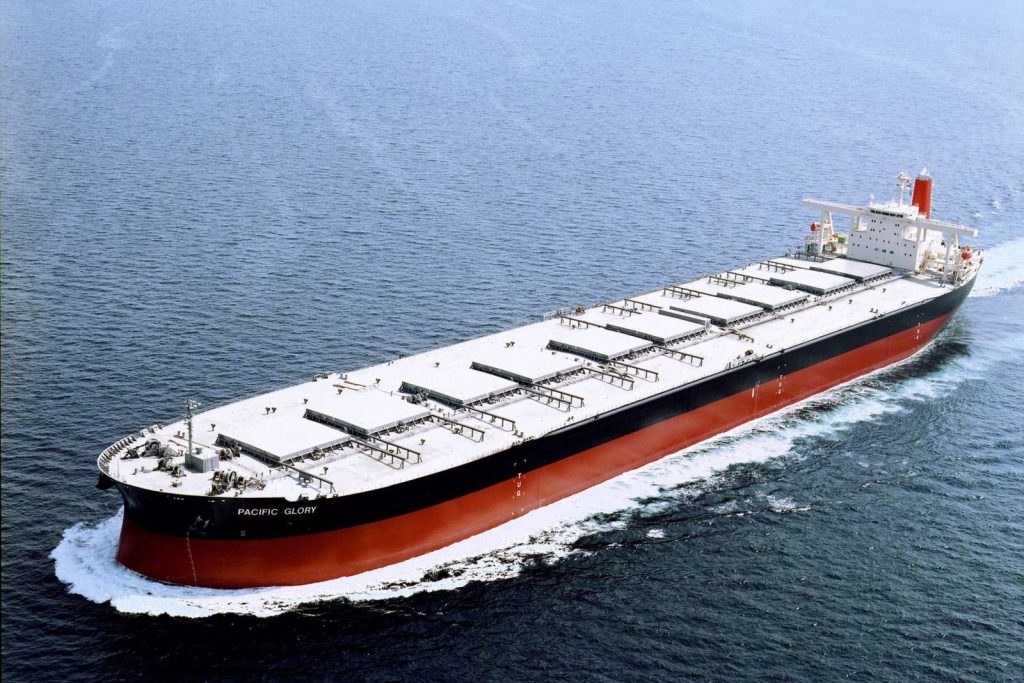
Reefer ships—or container vessels carrying specialized reefer containers—are an effective solution for transporting temperature-controlled goods such as frozen foods, fresh fruits, pharmaceuticals, and biotech products.
Their refrigeration systems operate 24/7, ensuring that the optimal temperature is maintained throughout the entire journey, even in the middle of the ocean.
Advantages:
- Preserves product quality over long periods
- Complies with strict regulations in the food and pharmaceutical sectors
6. Multi-purpose Vessels – Flexibility in all transport contexts
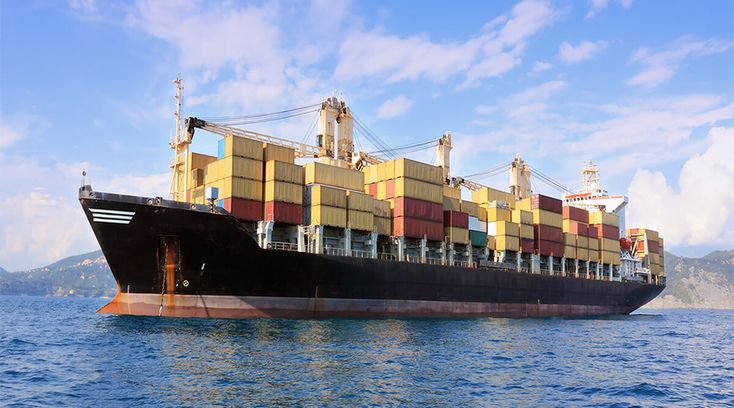
Multi-purpose vessels (MPVs or MPPs) are capable of carrying various types of cargo simultaneously—from containers and bulk goods to oversized cargo, industrial equipment, and project shipments.
They are an ideal choice for mixed cargo routes, particularly for niche or hard-to-reach ports where specialized vessels may not be feasible.
Advantages:
- Can handle a wide variety of cargo types
- Suitable for combined transport modes and ports with limited infrastructure
In the field of maritime transport, each type of vessel – from container ships to oil tankers or refrigerated ships – is designed to serve a specific purpose. Understanding the function of each ship type not only helps customers choose the most suitable means of transport but also optimizes costs, enhances efficiency, and minimizes operational risks. However, to successfully implement these transportation solutions, customers need a logistics partner with experience and a thorough understanding of import-export procedures.
ASL Logistics: Your True Logistics Partner in Transporting cargo by sea
ASL Logistics, with over 20 years of experience in logistics and international trade, proudly offers professional and comprehensive ocean freight services. We maintain a strong international network through affiliations with major freight forwarding associations like WCA and FIATA, along with a global network of agents at key seaports.
ASL Logistics provides full ocean freight solutions for both FCL and LCL, including free HS code consultation, document checking, vessel booking, cargo tracking, customs declaration, and door-to-door delivery. We support transport using various vessel types to meet diverse shipping needs—from food and raw materials to heavy industrial equipment and oversized cargo.
Additionally, ASL Logistics offers multimodal transport solutions, flexibly combining sea, land, and air to help clients save time and costs. Our customs brokerage services ensure compliance and reduce the risk of delays or errors in documentation and procedures.
Contact ASL Logistics today for a free consultation and experience the most efficient sea freight solution for your business!
For consultation or a service quote, please feel free to contact us:
|
Office Locations |
Phone Numbers |
|
|
ASL Ho Chi Minh |
+84-28 3512 9759 |
pricing@asl-corp.com.vn |
|
ASL Hai Phong |
+84-225 3260 906 |
aslhp@asl-corp.com.vn |
|
ASL Dong Nai |
+84-251 883 6018 |
asldn@asl-corp.com.vn |
|
ASL Binh Duong |
+84-274 366 2707 |
aslbd@asl-corp.com.vn |
Related services: Sea Freight, Air Freight, Consolidation Service, Customs Broker Service, Domestics Trucking, 4PL Logistics Supply Chain Management, Project Cargoes Handling, Multi-modal Transportation, Warehousing Services, Shipping and Logistics Services to The U.S, ISO Tank Service, E-Commerce Services for B2B and B2C, Trucking Cross Border to Cambodia, Laos.

Head Office
ASL Hồ Chí Minh
Số 31/34A Ung Văn Khiêm, Phường Thạnh Mỹ Tây, TP. Hồ Chí Minh, Việt Nam
 Công Ty Cổ Phần Giao Nhận Vận Tải Mỹ Á
Công Ty Cổ Phần Giao Nhận Vận Tải Mỹ Á
 (+84)28 3512 9759
(+84)28 3512 9759
 (+84)28 3512 9758
(+84)28 3512 9758
 pricing@asl-corp.com.vn
pricing@asl-corp.com.vn
 mdirector@asl-corp.com.vn
mdirector@asl-corp.com.vn
 www.asl-corp.com.vn
www.asl-corp.com.vn
LOGISTICS SERVICES










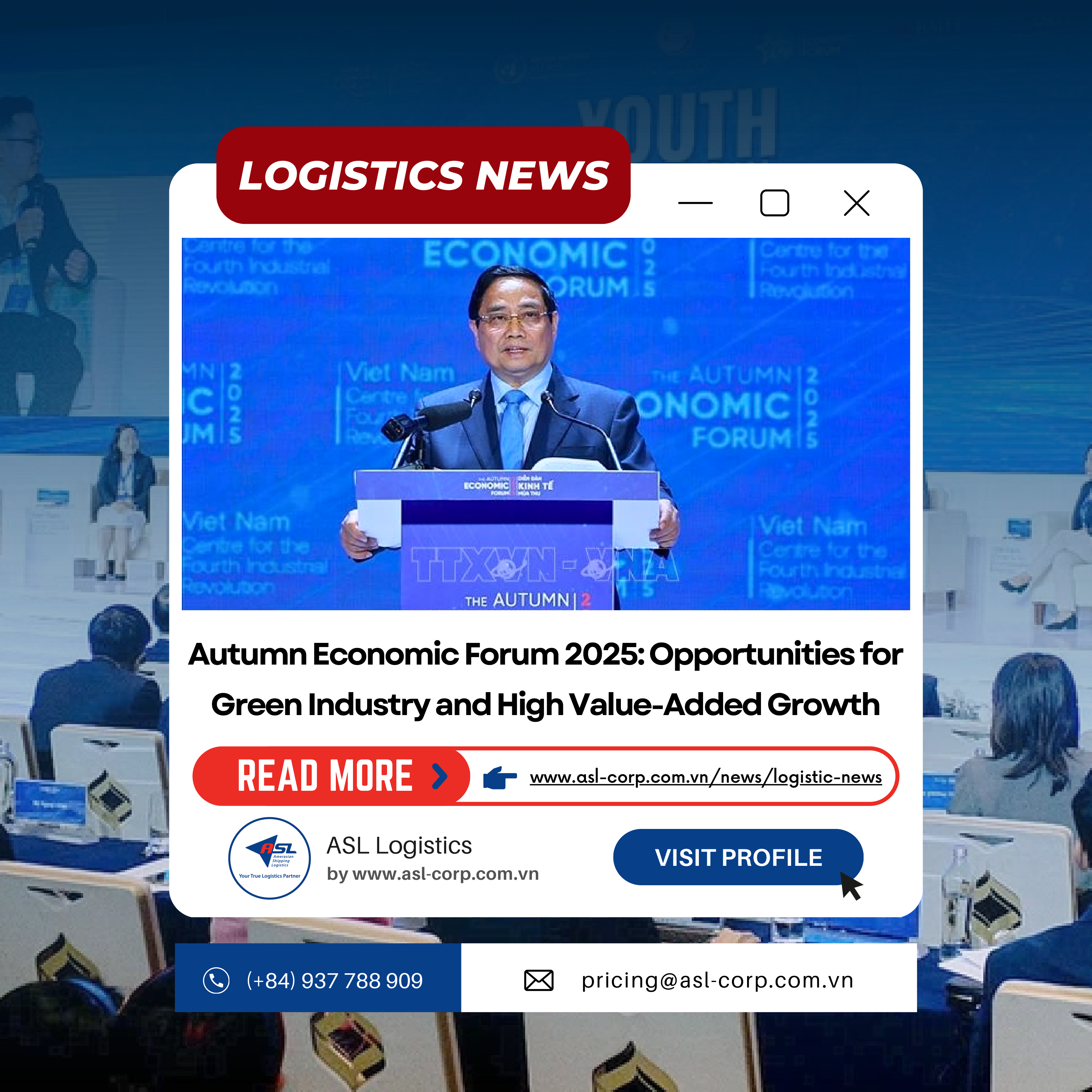
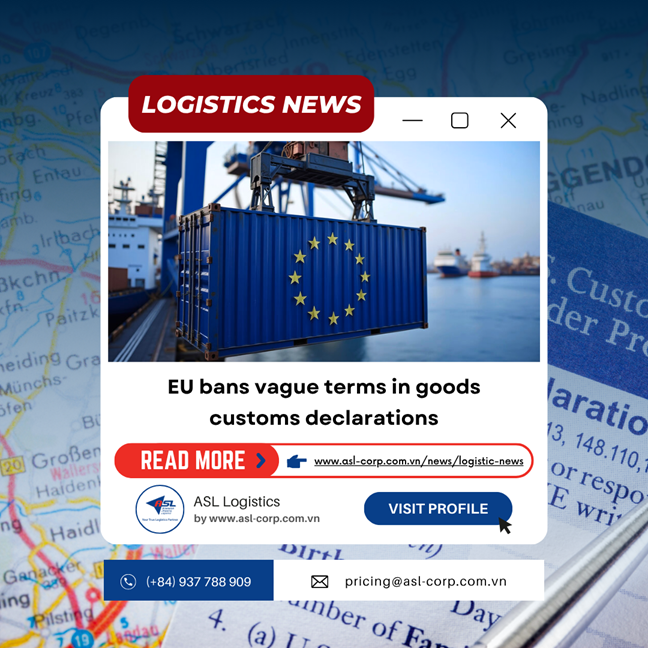
.png)
.png)
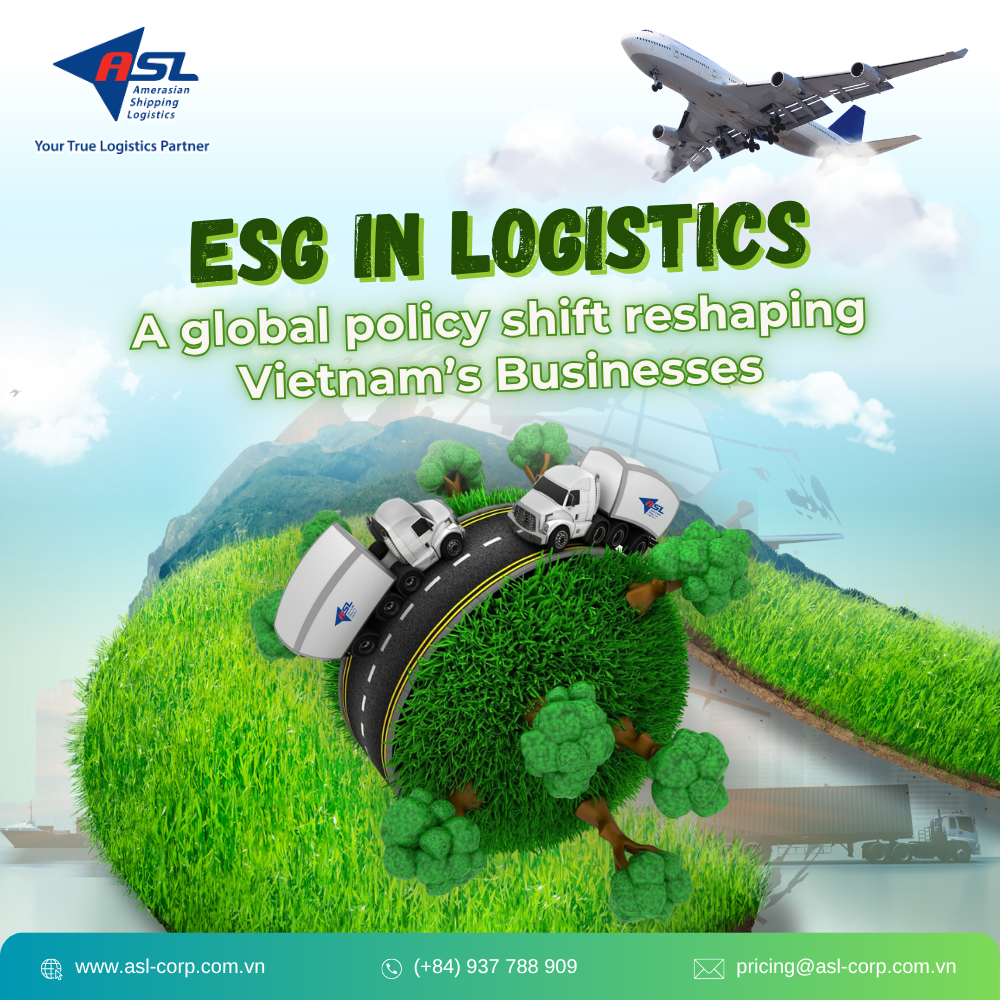
.png)

